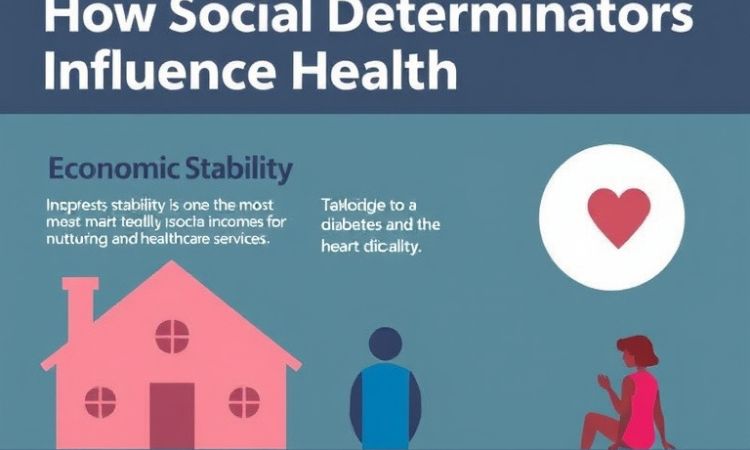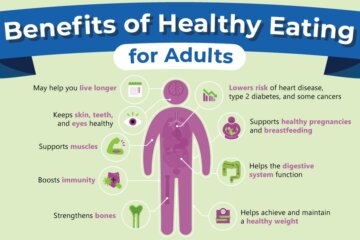Health is often perceived as a product of individual choices and medical care. While these factors undeniably play a role, they are only part of the equation. A growing body of research highlights the profound impact of social determinants of health (SDH)—the non-medical factors that shape health outcomes. These determinants include the conditions in which people are born, grow, live, work, and age, as well as the broader social, economic, and environmental forces that influence these conditions
Understanding social determinants of health is crucial because they account for a significant portion of health outcomes, often more than medical care itself. According to the World Health Organization (WHO), social determinants contribute to 30–55% of health outcomes and are a key driver of health inequities—the unfair and avoidable differences in health status within and between populations
This article explores why understanding SDH is essential, how they influence health, and what can be done to address them for a healthier, more equitable society.
What Are Social Determinants of Health?
Social determinants of health refer to the conditions in which people live, learn, work, and age, as well as the systems and policies that shape these conditions. These determinants are often categorized into five key domains:
- Economic Stability: Factors such as income, employment, and financial security.
- Education Access and Quality: Opportunities for quality education and lifelong learning.
- Healthcare Access and Quality: Availability of affordable, high-quality healthcare services.
- Neighborhood and Built Environment: Housing, transportation, and access to healthy food.
- Social and Community Context: Social support networks, discrimination, and community engagement
These domains interact in complex ways to influence health outcomes. For example, a person living in a low-income neighborhood with limited access to healthcare and nutritious food is more likely to experience poor health outcomes than someone in a wealthier area with abundant resources.

Why Are Social Determinants of Health Important?
1. They Shape Health Outcomes More Than Medical Care
While healthcare is essential, it is a relatively weak determinant of health compared to social and environmental factors. Research shows that health outcomes are driven by a combination of genetics, behavior, and social determinants, with SDH often playing the largest role.
For instance, a person’s zip code can be a stronger predictor of their health than their genetic code, as it reflects access to resources like quality schools, safe housing, and healthcare facilities.
2. They Drive Health Inequities
Social determinants are a major contributor to health disparities—differences in health outcomes between groups that are often rooted in social, economic, and environmental inequities. For example, people in low-income communities are more likely to suffer from chronic diseases, have shorter life expectancies, and face barriers to accessing healthcare compared to those in wealthier areas.
Addressing SDH is critical for reducing these disparities and promoting health equity.
3. They Impact Vulnerable Populations the Most
Certain groups, such as low-income individuals, racial and ethnic minorities, and people with disabilities, are disproportionately affected by adverse social determinants. For example, a lack of access to quality education can limit job opportunities, leading to financial instability and poor health outcomes. Understanding SDH helps identify and address the unique challenges faced by these populations
4. They Influence Long-Term Health
Social determinants not only affect immediate health outcomes but also have long-term implications. For instance, children who grow up in poverty are more likely to experience poor health as adults, perpetuating a cycle of disadvantage. Early interventions that address SDH can have a lasting impact on health and well-being.
How Social Determinants Influence Health
Economic Stability
Economic stability is one of the most significant social determinants of health. People with stable incomes are more likely to afford nutritious food, safe housing, and healthcare services. Conversely, financial insecurity can lead to stress, poor nutrition, and limited access to medical care, increasing the risk of chronic diseases like diabetes and heart disease.

Education
Education is a powerful predictor of health outcomes. Higher levels of education are associated with better health literacy, higher incomes, and healthier behaviors. For example, individuals with college degrees are more likely to engage in regular physical activity and avoid smoking compared to those with less education.
Healthcare Access
Access to affordable, high-quality healthcare is essential for preventing and managing illnesses. However, many people face barriers such as high costs, lack of insurance, and geographic inaccessibility. These barriers disproportionately affect low-income and rural populations, exacerbating health disparities.
Neighborhood and Environment
The physical and social environment in which people live has a profound impact on health. Factors such as air quality, access to green spaces, and availability of healthy food options can either promote or hinder health. For example, living in a food desert—an area with limited access to affordable, nutritious food—can increase the risk of obesity and related health conditions
Social Context
Social support networks and community engagement play a crucial role in mental and physical health. People with strong social connections are less likely to experience depression and more likely to recover quickly from illnesses. Conversely, social isolation and discrimination can have detrimental effects on health.
The Role of Policy in Addressing Social Determinants
Addressing social determinants of health requires a multi-sectoral approach that goes beyond healthcare. Policies and programs in areas such as housing, education, and employment can have a significant impact on health outcomes. For example:
- Affordable Housing Initiatives: Providing safe, affordable housing can reduce exposure to health hazards like mold and lead, improving overall health.
- Education Programs: Investing in early childhood education and job training programs can improve health literacy and economic stability.
- Workplace Policies: Ensuring fair wages, safe working conditions, and access to healthcare benefits can enhance employee well-being.
- Community Development: Building parks, improving public transportation, and increasing access to healthy food can promote healthier lifestyles 6.
Examples of Successful Interventions
Several initiatives have successfully addressed social determinants of health, demonstrating the potential for positive change:
- The Healthy People 2030 Initiative: This U.S. government program focuses on improving health by addressing social, economic, and environmental factors. It emphasizes the importance of cross-sector collaboration to tackle SDH 6.
- Community Health Programs: Local programs that provide resources like food assistance, housing support, and job training have shown significant improvements in health outcomes for vulnerable populations.
- Global Efforts: Countries like Sweden and Canada have implemented policies that prioritize social determinants, resulting in better health outcomes and reduced disparities.

Challenges in Addressing Social Determinants
Despite their importance, addressing social determinants of health is not without challenges. These include:
- Limited Funding: Many programs that address SDH rely on government or philanthropic funding, which can be inconsistent.
- Fragmented Systems: Lack of coordination between healthcare, education, and social services can hinder efforts to address SDH comprehensively.
- Political and Social Barriers: Policies aimed at addressing SDH often face resistance due to political ideologies or societal attitudes.
The Future of Social Determinants of Health
As awareness of social determinants grows, there is increasing momentum to integrate them into public health strategies. Advances in technology, such as data analytics and artificial intelligence, offer new opportunities to identify and address SDH. For example, predictive analytics can help identify communities at risk and allocate resources more effectively.
Moreover, the COVID-19 pandemic has highlighted the critical role of social determinants in health outcomes, particularly for vulnerable populations. This has spurred renewed interest in addressing SDH to build more resilient and equitable health systems.
Conclusion
Understanding social determinants of health is essential for improving health outcomes, reducing disparities, and promoting health equity. These non-medical factors—ranging from economic stability to social support—play a more significant role in shaping health than many people realize. By addressing SDH through policies, programs, and cross-sector collaboration, we can create a healthier, more equitable society. The journey to addressing social determinants is complex, but the potential benefits are immense. From reducing chronic diseases to improving mental health, tackling SDH is not just a public health priority—it’s a moral imperative. As individuals, communities, and policymakers, we all have a role to play in understanding and addressing the social determinants of health.

“As the voice behind Radiant Glow Health, we are dedicated to being your ultimate wellness and vitality companion. Our mission is to inspire and guide you on your journey to a healthier and more vibrant life. Join us as we explore holistic health practices and empower you to radiate wellness from within.”



